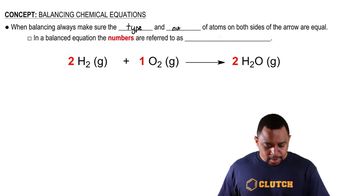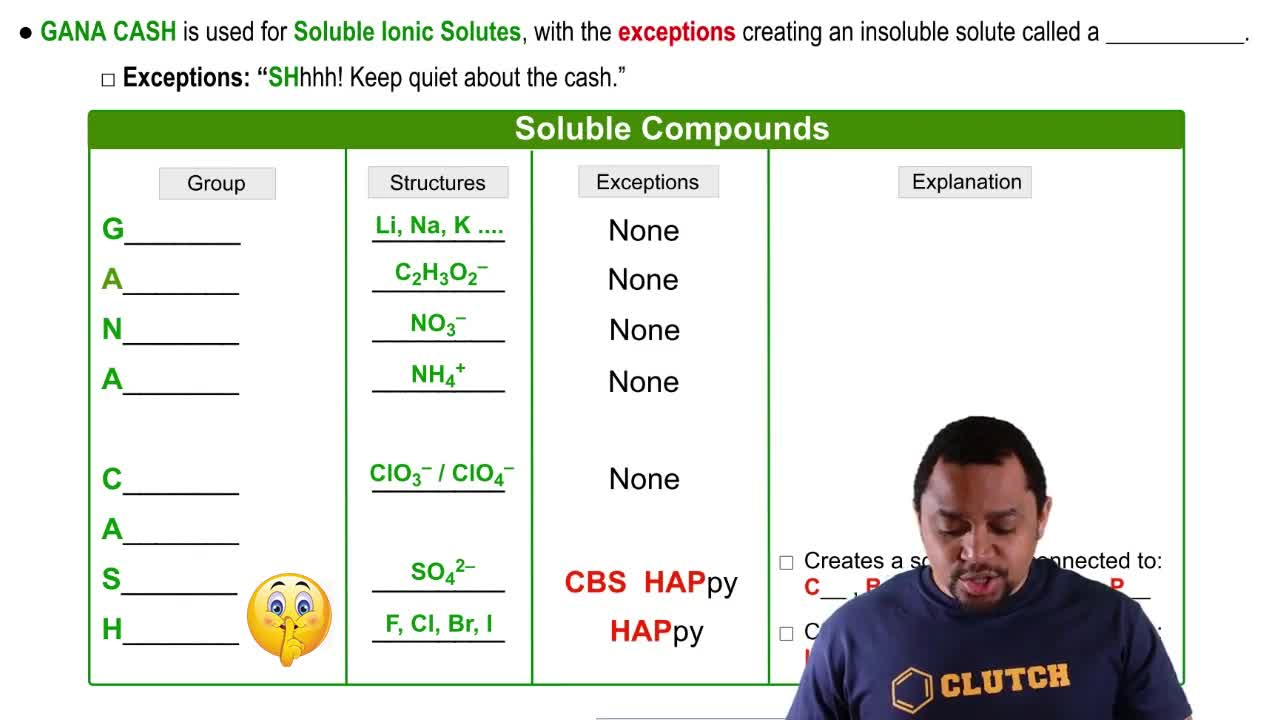Write balanced complete ionic and net ionic equations for each reaction. d. HC2H3O2(aq) + K2CO3(aq) → H2O(l ) + CO2(g) + KC2H3O2(aq)
Write balanced molecular and net ionic equations for the reaction between hydrobromic acid and potassium hydroxide.
 Verified step by step guidance
Verified step by step guidance
Verified Solution
Key Concepts
Acid-Base Reactions

Balanced Chemical Equations

Ionic Compounds and Solubility

Mercury(I) ions (Hg22+) can be removed from solution by precipitation with Cl- Suppose that a solution contains aqueous Hg2(NO3)2. Write complete ionic and net ionic equations for the reaction of aqueous Hg2(NO3)2 with aqueous sodium chloride to form solid Hg2Cl2 and aqueous sodium nitrate.
Lead(II) ions can be removed from solution by precipitation with sulfate ions. Suppose that a solution contains lead(II) nitrate. Write complete ionic and net ionic equations for the reaction of aqueous lead(II) nitrate with aqueous potassium sulfate to form solid lead(II) sulfate and aqueous potassium nitrate.
Write balanced molecular and net ionic equations for the reaction between nitric acid and calcium hydroxide.
Complete and balance each acid–base equation.
a. H2SO4(aq) + Ca(OH)2(aq) →
b. HClO4(aq) + KOH(aq) →
c. H2SO4(aq) + NaOH(aq) →
Complete and balance each acid–base equation. b. HC2H3O2(aq) + Ca(OH)2(aq) →
